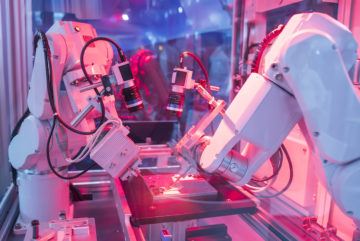
A Boston Review Forum on AI with a lead essay by Daron Acemoglu and responses from numerous people including Daniel Susskind, Andrea Dehlendorf and Ryan Gerety, and Aaron Benanav. Acemoglu:
Artificial Intelligence (AI) is not likely to make humans redundant. Nor will it create superintelligence anytime soon. But like it or not, AI technologies and intelligent systems will make huge advances in the next two decades—revolutionizing medicine, entertainment, and transport; transforming jobs and markets; enabling many new products and tools; and vastly increasing the amount of information that governments and companies have about individuals. Should we cherish and look forward to these developments, or fear them?
There are reasons to be concerned. Current AI research is too narrowly focused on making advances in a limited set of domains and pays insufficient attention to its disruptive effects on the very fabric of society. If AI technology continues to develop along its current path, it is likely to create social upheaval for at least two reasons. For one, AI will affect the future of jobs. Our current trajectory automates work to an excessive degree while refusing to invest in human productivity; further advances will displace workers and fail to create new opportunities (and, in the process, miss out on AI’s full potential to enhance productivity). For another, AI may undermine democracy and individual freedoms.
Each of these directions is alarming, and the two together are ominous. Shared prosperity and democratic political participation do not just critically reinforce each other: they are the two backbones of our modern society. Worse still, the weakening of democracy makes formulating solutions to the adverse labor market and distributional effects of AI much more difficult. These dangers have only multiplied during the COVID-19 crisis. Lockdowns, social distancing, and workers’ vulnerability to the virus have given an additional boost to the drive for automation, with the majority of U.S. businesses reporting plans for more automation.
None of this is inevitable, however. The direction of AI development is not preordained. It can be altered to increase human productivity, create jobs and shared prosperity, and protect and bolster democratic freedoms—if we modify our approach.
More here.
